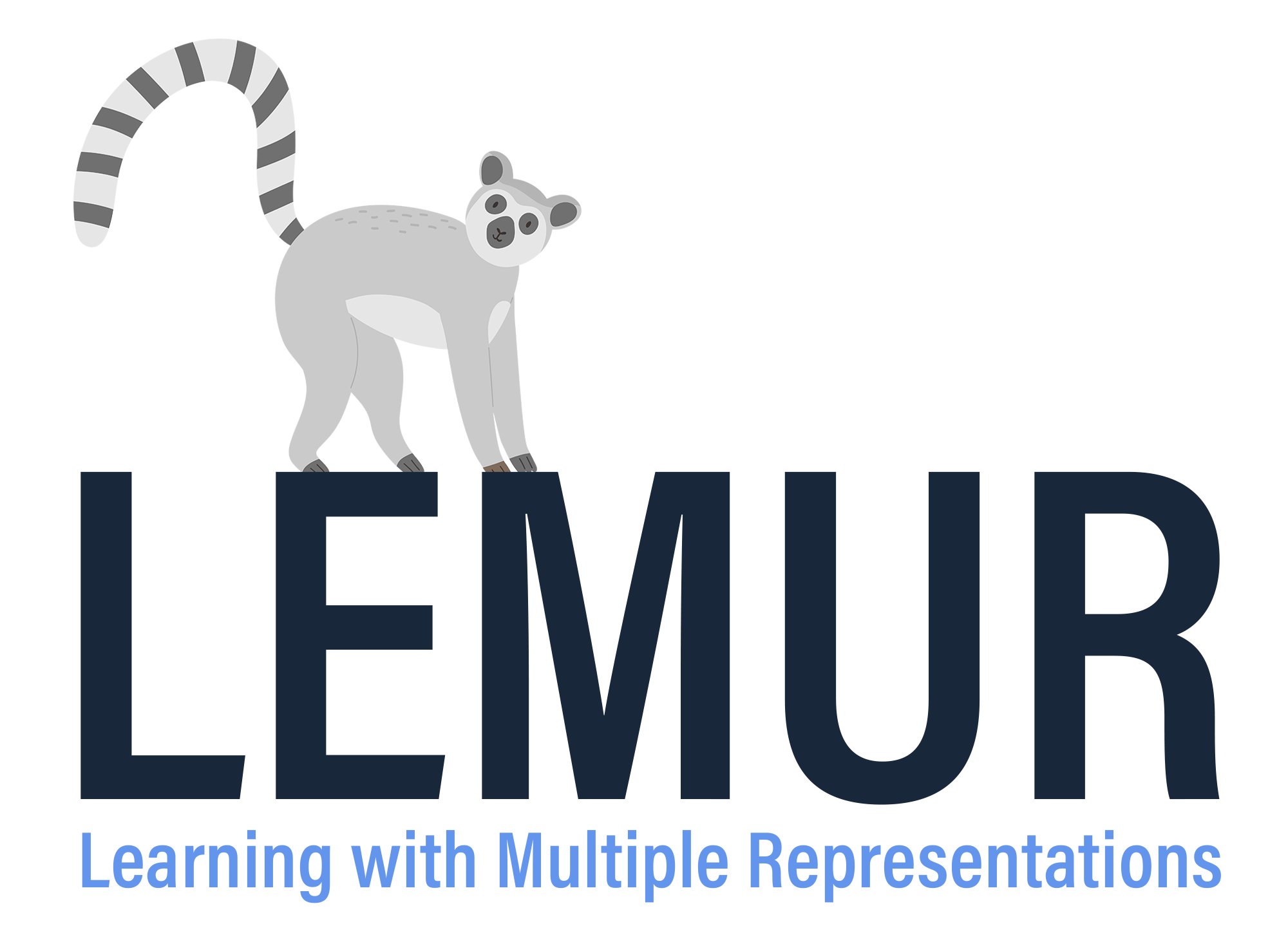Detailed Objectives
LEMUR aims to address LMR in a holistic manner, i.e., from the formal foundations to real applications of LMR. These objectives are broken down along the following three facets:
- F1 - Foundations: We will aim to develop the first set of formal guarantees and limitations of LMR. We will focus in particular on questions pertaining to performance prediction and computational complexity;<\li>
- F2 - Methods: We will develop novel LMR algorithms and evaluation metrics to target high-impact representations (e.g., graphs and vectors) and ML model families (in particular deep learning and class expression learning). We will put a special emphasis on developing algorithms which instantiate and exploit the formal guarantees derived in F1 as well as optimize metrics for ethical, social
and environmental impact;
- F3 - Applications and Impact: We will apply LMR to real-world problems. The intersectoral and interdisciplinary collaborations with our associated partners will enable us to work with experts from sectors and disciplines as diverse as financial services (DATEV), health care (Philips Research), energy (Baker & Hughes), water management (Water Board of Lemesos), and public procurement (City of Skellefteå) to address real-life challenges with tailored LMR approaches. We will monitor the repercussions of LMR on performance, required computational resources (environmental impact), and trustworthiness as perceived by the end users of the algorithms. In
addition, the potential impact of LMR on ethics in AI will be targeted in an overarching study.



HORIZON Unit Grant


